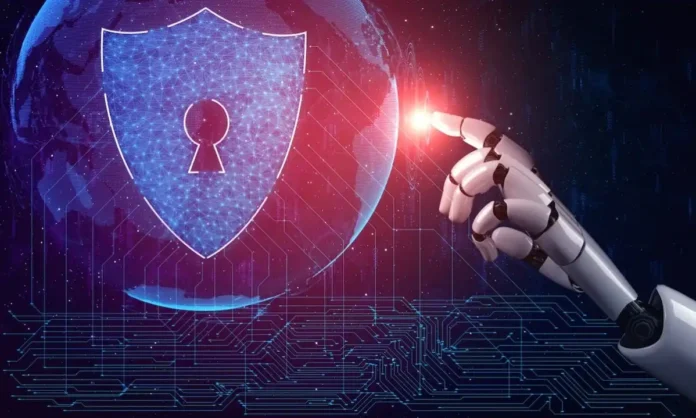Cybersecurity is the lifeblood of modern business. With a large number of transactions taking place online and sensitive information involved, safe business practices in 2024 demand cutting-edge cybersecurity measures.
Today, we look at the best cybersecurity services that help businesses operate safely. But before we do that, here’s a reminder of why safeguarding your digital assets is crucial in today’s business environment.
Understanding the Cybersecurity Threats a Business Faces in 2024
Cybersecurity has emerged as a paramount challenge for organizations of all scales. The surge in remote work, cloud computing, and the proliferation of internet-connected devices has exponentially expanded the target net for hackers. This makes businesses vulnerable to a growing spectrum of cyber threats.
Sophisticated data breaches and ransomware attacks are now commonplace, underscoring the critical need for robust cybersecurity measures.
In today’s competitive business environment, sensitive data, intellectual property, and customer information are crown jewels. A cyber intrusion or security breach can lead to severe financial losses, irreparable harm to reputation, and expensive legal challenges.
Over 30,000 companies in the US, from mom-and-pop shops to government offices, found themselves in the cross-hairs of a cyber-armageddon in 2021.
Hackers exploited multiple vulnerabilities in Microsoft Exchange servers to access email accounts. They implanted malicious web shells to grant persistent administrative control over the victims’ servers.
The fallout from the Microsoft Exchange attack was far-reaching, serving as a stark reminder of the unpredictable nature of cyber threats. No business is immune to the relentless pursuit of cybercriminals, regardless of size or industry.
Whether or not your organization was directly impacted, the attack underscores the critical importance of a comprehensive threat assessment and robust cybersecurity strategy.
For this reason, all businesses must elevate cybersecurity to a strategic imperative to protect their assets and preserve customer trust.
Why Cybersecurity is Important in the Casino Industry
Cybercriminals often target casino systems with ransomware attacks, encrypting critical data and demanding substantial ransom payments for its release. These attacks can lead to extensive operational disruptions, significant financial losses, and severe damage to a casino’s reputation.
Such attacks can cause major operational disruptions, considerable financial losses, and serious damage to a casino’s reputation. Last year, two of the world’s largest casino companies were hit by ransomware attacks. You guessed it – MGM and Caesars were the targets
Weeks before a devastating cyberattack crippled MGM Resorts, Caesars Palace was also a victim of a similar cyberattack. Both forced lengthy check-in times, disabling electronic payments, digital key cards, slot machines, ATMs, and parking systems, causing a multi-day outage of their websites and mobile apps.
The two casino giants were victims of ransomware attacks carried out by organized cybercrime groups. ALPHV, also known as Black Cat, took credit for the MGM attack, while a linked group, Scattered Spider, targeted Caesars.
As a result, most big-name casinos, particularly in developed countries, are making substantial investments to strengthen their cybersecurity measures. For example, Canada’s gambling industry is now renowned globally for its size and safety.
In response to the evolving threat landscape, many different Canadian casinos made substantial investments to enhance their cybersecurity infrastructure. This has ensured a secure gambling experience for their clients.
Top Cybersecurity Solution Features
Encryption
Encryption acts as a powerful shield against unauthorized access to sensitive information. Businesses can implement robust encryption protocols to safeguard the confidentiality of financial transactions, personal data, and critical communication channels.
Firewalls and Intrusion Detection Systems (IDS)
Firewalls and Intrusion Detection Systems (IDS) form a critical defensive bulwark, diligently monitoring network traffic for suspicious activities and preventing unauthorized access. These security stalwarts act as vigilant guardians, safeguarding internal networks from the relentless onslaught of external threats by promptly identifying and neutralizing potential breaches.
Multi-Factor Authentication (MFA)
Multi-Factor Authentication (MFA) significantly bolsters security by demanding multiple, independent verification factors from users before granting access. This layered approach effectively thwarts unauthorized access attempts. Even if one form of authentication is compromised, cybercriminals are required to overcome additional hurdles to gain entry, significantly reducing the risk of successful breaches
Biometric Security
Businesses are increasingly adopting biometric authentication systems, such as fingerprint, facial recognition, and iris scanning, to fortify their security infrastructure. These advanced technologies offer a substantial upgrade from traditional password-based authentication methods. This, in turn provides a more robust and secure means of verifying user identity and preventing unauthorized access.
Artificial Intelligence (AI) and Machine Learning (ML)
AI and ML technologies can also serve as vigilant sentinels for modern businesses. They can continuously scan for and respond to emerging cyber threats in real time. By processing immense volumes of data, these intelligent systems can identify subtle patterns and irregularities that signal malicious activity. As a result, swift and precise countermeasures to protect against sophisticated attacks can be put in place.



































